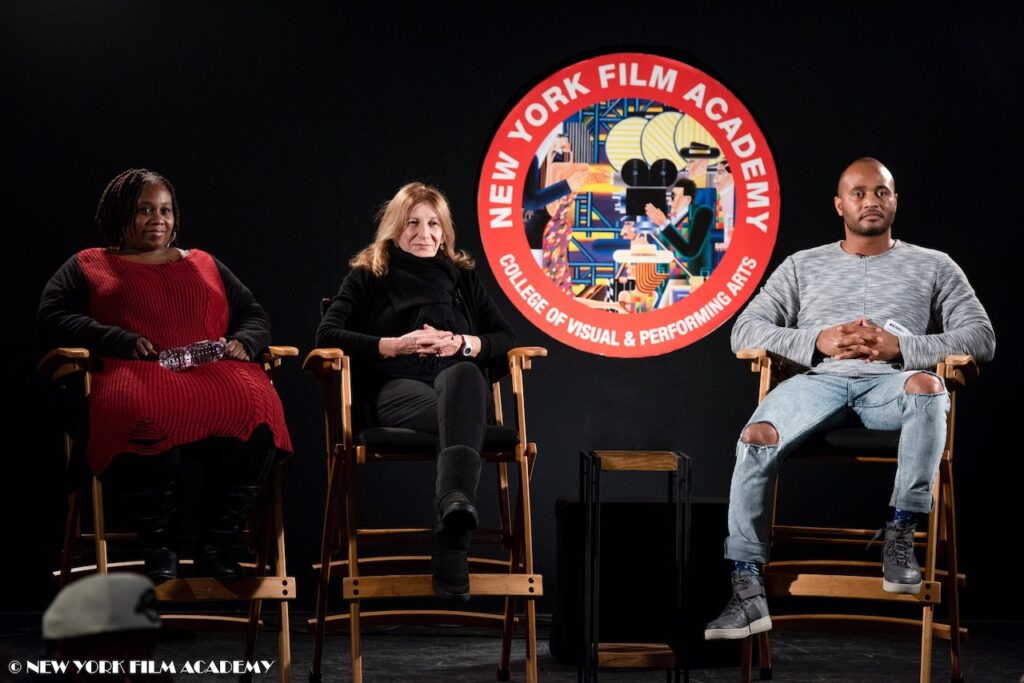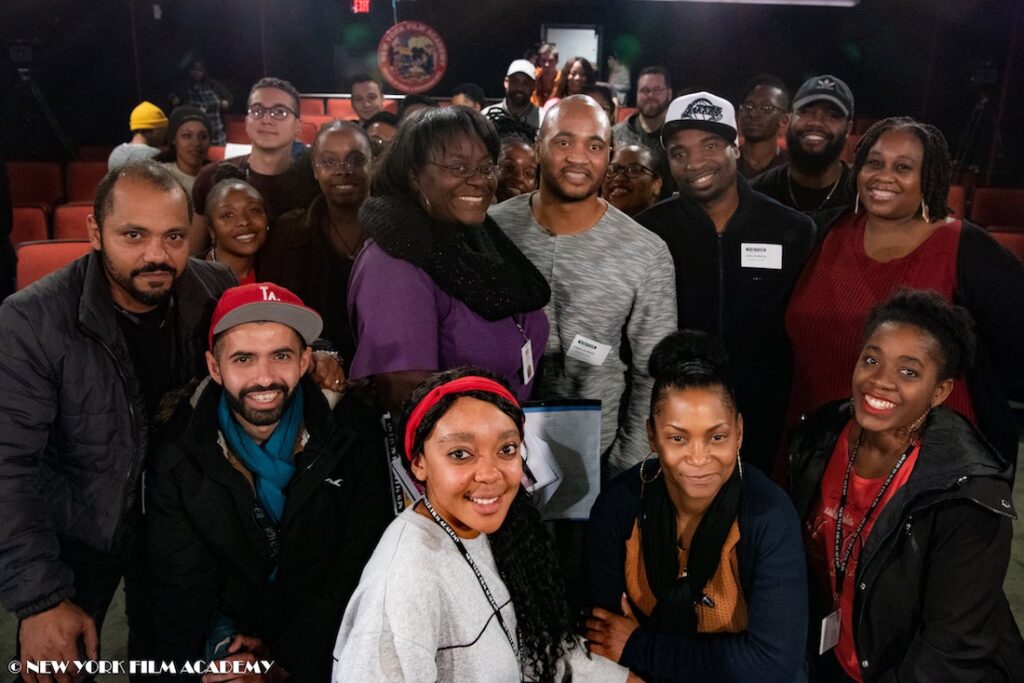On Wednesday, February 13, as part of celebrating Black History Month, New York Film Academy (NYFA) and the NYFA African Black American Film Society hosted a screening of two episodes of Netflix’s Dear White People, followed by a Q&A with writer and producer Chuck Hayward.
One of the episodes was directed by Academy award nominee Barry Jenkins (Moonlight, If Beale Street Could Talk), which was a real treat for the filmmaking students. It was moderated by NYFA Director of the Q&A Series, Tova Laiter, and co-moderated by NYFA directing student, Nicole “Soul” Creary.
Hayward landed his first staff writing gig on the NBC series Bent. His feature film script, Potluck, won the WGA’s 2012 Feature Access Project. He then sold an untitled baseball project to Nickelodeon, after which he wrote for the Nick at Nite sitcom Wendell & Vinnie. In 2014, Hayward became a staff writer on the new NBC series One Big Happy, followed by Fox series Cooper Barrett’s Guide To Surviving Life.
In 2016, he had two movies produced—Fat Camp and Step Sisters—and sold the Untitled Urban Pitch Perfect Project to The Firm and PepsiCo. Hayward is currently a writer and co-producer on the Netflix series, Dear White People, and a producer on Marvel’s upcoming untitled Scarlet Witch and Vision series.
Many students in the audience were curious about how Hayward started his career as a writer. “For me, personally, it was the contacts I already had,” said Hayward. “It was reaching out to all of them saying, ‘Can we meet for an informal meeting? Here’s what I’m interested in doing… can you introduce me to anybody else who might be able to help me in that?’… And then it’s just all about following up…You don’t want them to forget about you, although not bug them too often… A lot of times, offering to work for people for free on a project is a good way to show, like, ‘Hey… I’m not looking for anything from you financially; I’m just kind of looking for you to help me get my foot in the door and I’m looking for a chance to show what I’m capable of.”
Other students wanted to know about Hayward’s writing process. “I’m a big pre-writer so I’ll sit down, I’ll write my character sketches, I’ll write my outline; I’ll do as much as possible before I open up Final Draft because I don’t want to look at a blank page and freak out,” Hayward said. “It’s also knowing if your idea is better suited to television or film.”
One of the students asked how Hayward and the other writers on Dear White People navigate the complexity of the topics discussed on the show. He replied, “Most of the blowback that we’ve gotten about Dear White People happened before the show came out because people were like, ‘Dear White People? How dare you … address us as a group!’ And we were like, ‘Oh that happens to us all the time, oddly, so it’s not that big of a deal’ … But I think once people started to see the show and see what it was about and see that we weren’t just ‘coming for’ white people and taking out … aggression on them; we weren’t blaming them for stuff; it was just like, ‘Hey, here’s some of the shit you do that bothers us; like, maybe don’t do that anymore; it’s super easy!’ And we also take as many stabs at, you know, black folks and the things that we do that are problematic or that are not beneficial to us all as a group.”
The New York Film Academy would like to thank writer and producer Chuck Hayward for sharing his entertainment industry and writing advice with our students!

